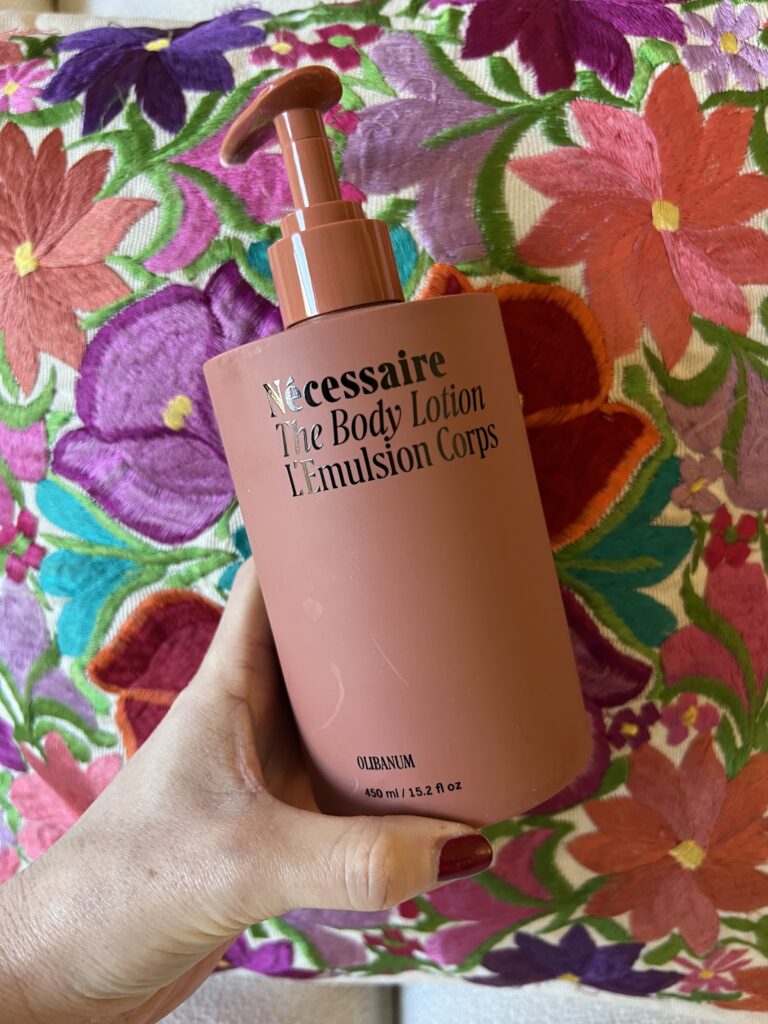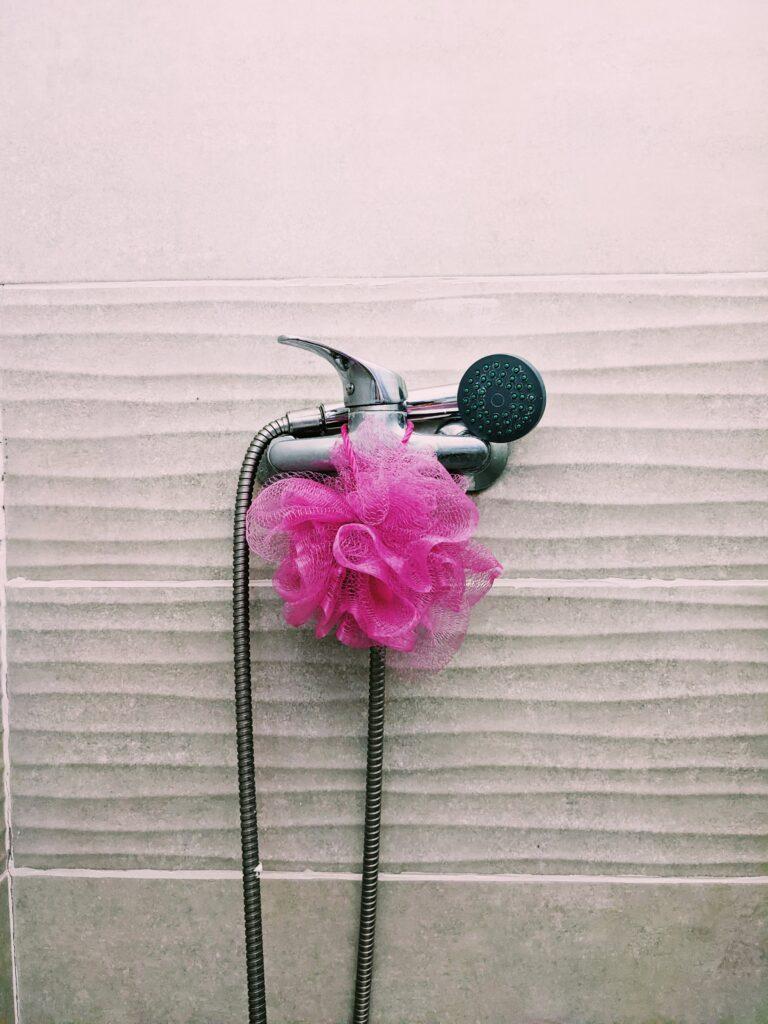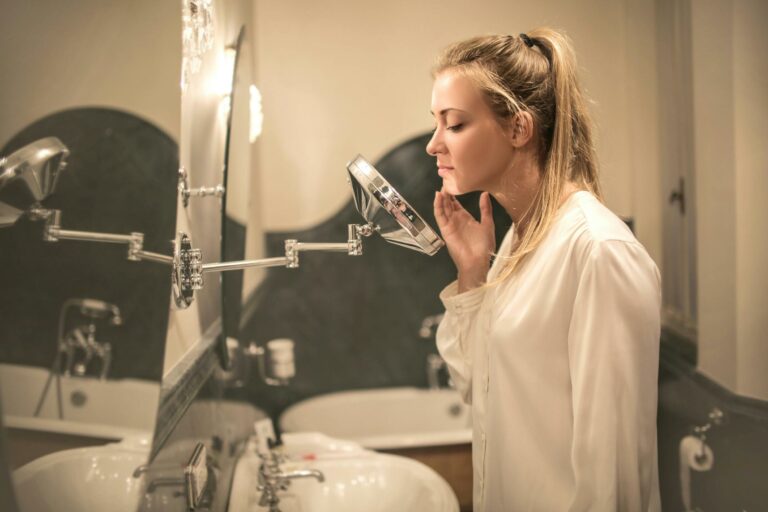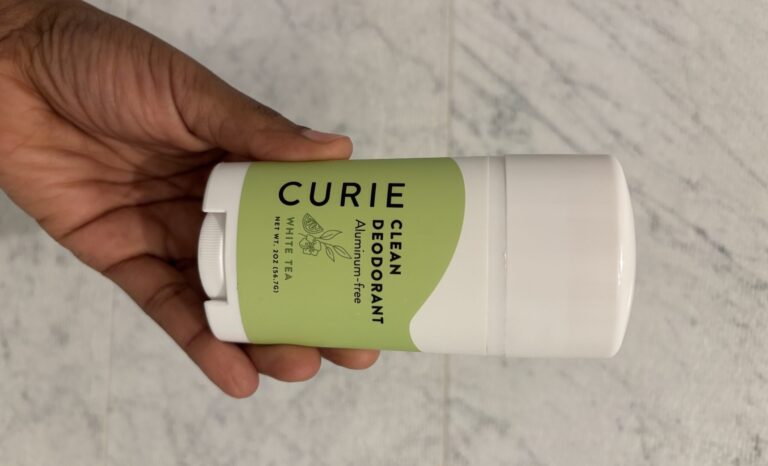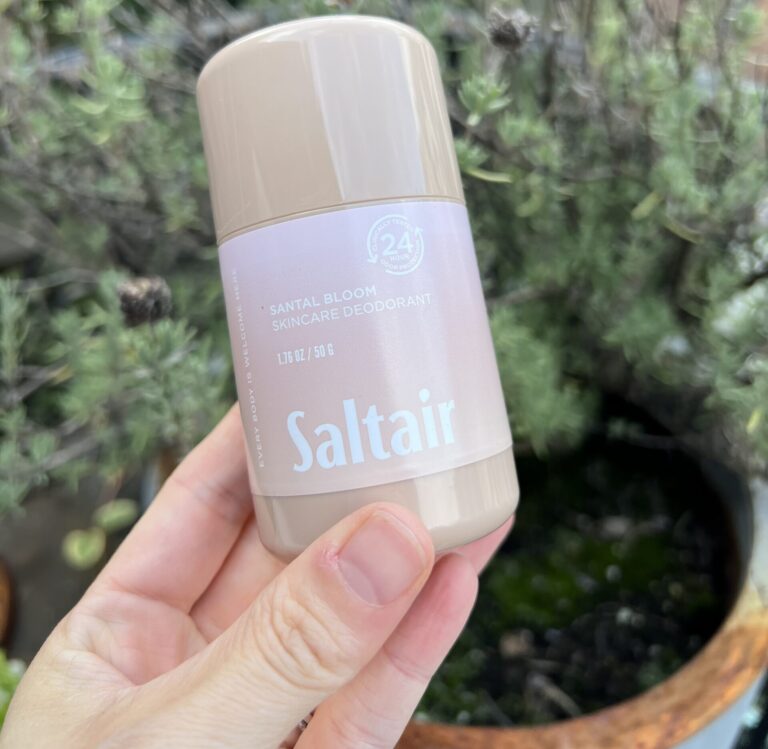How To Deal With Eczema in the Summer
Eczema is an inflammatory skin condition that can show up as itchy, dry, scaly, or blistering of the skin. Unfortunately, eczema is pretty unpredictable, and it’s been known to flare up as the seasons change. Hot weather in the summer months can be a huge trigger for some people with eczema (thank God for air conditioning). For this reason, you may be wondering how to deal with eczema in the summer or warmer months. The good news is that a little bit of skincare goes a long way.
Sweating, outdoor allergens, increased exposure to sunlight, hot water, and other factors can contribute to an eczema flare-up. According to a study done by researchers at the Johns Hopkins School of Medicine, a bacteria called Staphylococcus aureaus is a big factor in atopic dermatitis. Thankfully, there are a ton of different things you can do to prevent or treat eczema during the hot, humid months.
Below, I’ve covered everything that’s helped me calm an eczema flare and ways I avoid the inflammatory response—including how to deal with eczema in the summer.
Is Eczema Hereditary?
The bad news: Per the National Eczema Association, eczema is hereditary. For instance, if both of your parents have eczema, there’s a 50 percent chance that you’ll also have eczema.
The good news: There’s a lot you can do to combat your flare-ups, which I go into a couple of sections down. Having dealt with eczema my whole life, I know it gets worse in the summer. What I didn’t know was why.
Why Does Eczema Flare Up In Summer?
According to the American Academy of Dermatology, some folks notice their eczema flaring up in the summer because their skin gets irritated by sweat, outdoor allergens, and spending time in stronger sunlight. This means that environmental factors are atop the list of why eczema flares up in the summer.
If you know your skin is super sensitive during the hotter months, it may be a good idea to check your skin care for any additional irritants like fragrances and parabens. Moreover, if you want to play it super safe, I’d suggest avoiding chlorinated pools. Chlorinated water can really dry out your skin, which is so bad for your eczema. Without further ado, let’s get into how to deal with eczema in the summer.
How To Deal With Eczema In The Summer
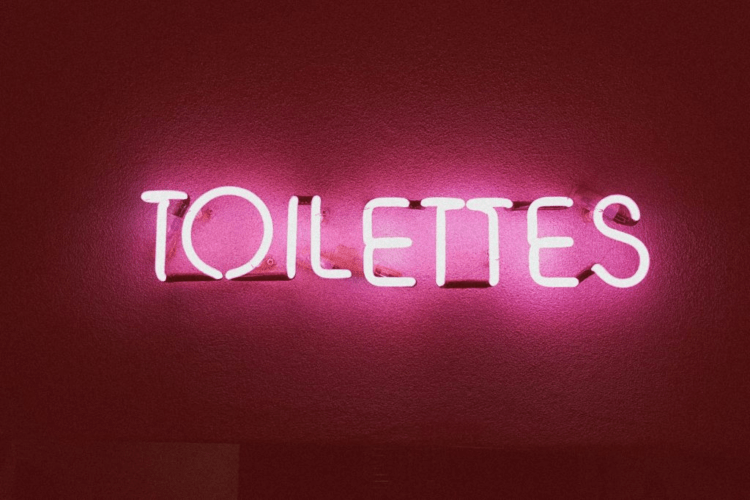
Keep your bowels moving regularly.
Okay, so this is the least sexy tip on this list, but I placed it first because I think it’s the most important. TMI, but I’ve struggled with constipation my whole life. My constipation got so bad it started affecting a lot of health-related aspects of my life, including my skin.
What I found to be incredibly interesting is that, when I’m constipated and haven’t pooped in a day or two, I can feel the eczema itch start to creep up. (If you suffer from this condition, you know what I mean—it’s that oh-so-subtle itch that, if not treated now, will blow up into a full eczema breakout). But, once I have a bowel movement (BM), that itchiness goes away, and my eczema doesn’t flare up.
If you think about it, BMs are your body’s way of getting rid of excess hormones. If you’re not pooping, those excess hormones are sitting in your gut and will be reabsorbed into the bloodstream. This can potentially wreak havoc on your body (and your skin). Because of this, I prioritize my BMs over everything else.
Eat beans.
I’ve been really into Unique Hammond and Karen Hurd’s work regarding The Bean Protocol. If you’re unfamiliar, The Bean Protocol is a special diet that encourages you to incorporate a ton of beans into your diet daily. Beans are very high in soluble fiber (which helps you poop), and if you struggle with constipation like me, they are your friend. Beans are a natural defense against gut issues!
Drink fiber powder.
Adding psyllium husk to water and drinking it every day is such an easy way to keep things regular. It’s safe for your gut, tastes decent, and doesn’t cost an arm and a leg. Keep in mind that psyllium husk can thicken and get slimy kinda quickly, so you’ll want to add it to water and drink it fast, especially if you have issues with food textures. I like the taste of Bellway and find it easy to incorporate into my morning routine daily.
Take BM pills when needed.
Oftentimes when I travel and don’t stick to my regular routine or meals, I find myself pretty constipated. To avoid this, I take Dr. Christopher’s Original Formulas Lower Bowel Formula Capsules. I discovered these capsules after watching a Youtube video from Organic Olivia, and have found that they work terrifically at preventing constipation during times when I need a bit of extra support. I usually take two capsules once per day, but I think it’s safe to take up to six capsules per day. Just make sure to consult your doctor before taking any supplement.
Load up on probiotics.
There is a ton of research around probiotics and gut health, and I find it very interesting and exciting. I’ll admit that I don’t see a huge difference when taking probiotics in terms of controlling eczema, but I don’t take probiotics frequently enough to be able to test this. When I do take probiotics, I like to take refrigerated ones, like the Klaire Labs Ther-Biotic Complete – 25 Billion CFU Probiotic Supplement. Seed Probiotics are another popular brand, but they made me really sick the first week I tried them, so I’m not a huge fan.
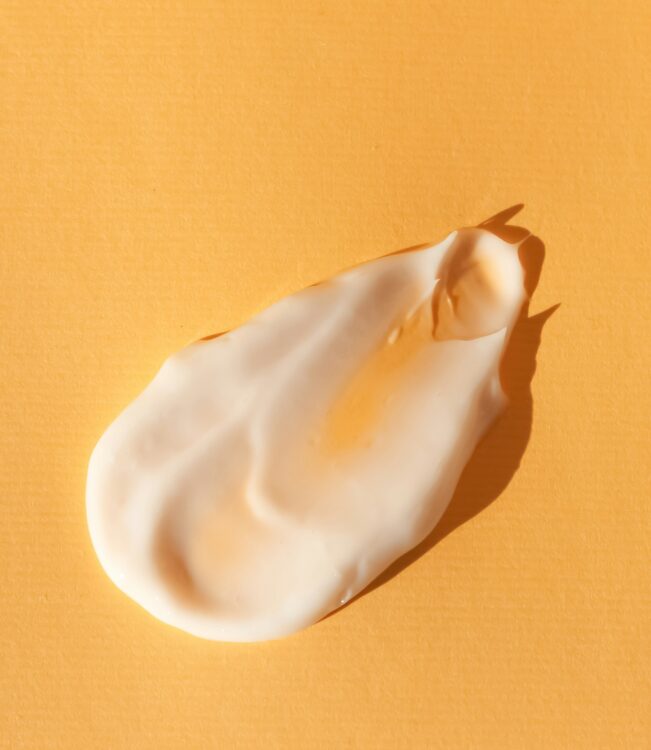
Invest in a great skin-protecting moisturizer.
When dealing with eczema, it’s really important to avoid using any products that will exacerbate or irritate your skin. I love the Vanicream Moisturizing Skin Cream (might be too heavy for summertime) and Moisturizing Lotion.
Another brand I live and die by is Avène. This French skincare brand is specifically formulated for super sensitive skin. And I find their products to be very gentle and non-irritating on my eczema. Plus, a ton of their products have the National Eczema Association Seal of Acceptance. Some of my fave Avène products include:
- Eau Thermale Avène Cicalfate+ Restorative Protective Cream
- Eau Thermale Avène XeraCalm A.D Lipid-Replenishing Cream (great for eczema-prone skin on the body)
- Eau Thermale Avène RetrinAL Ceramide Lipid-Replenishing Balm
Choose a mineral sunscreen.
In my experience, mineral sunscreen (rather than chemical sunscreens) not only doesn’t irritate my eczema, but it almost seems to dry it out a bit and reduce the redness, too. Mineral sunscreens, also known as physical sunscreens, contain ingredients like zinc oxide and titanium dioxide.
Many folks recommend applying zinc to eczema. So a zinc oxide-based mineral sunscreen might help calm any inflammation while it works to protect your skin. One of my favorites is the La Roche-Posay Anthelios 50 Mineral Ultra-Light Sunscreen Fluid SPF 50.

Swim in salt water.
This is entirely unscientific, but I believe there are a lot of healing powers in the ocean. And that includes helping to clear up skin issues. I notice that my eczema is less inflamed after a dip into the ocean during the summer months. There’s just something about the fresh water. While at the beach, make sure to wear loose, long-sleeved tops and coverups to protect your skin from the sun while also letting your eczema/skin breathe, too.
Another trick I’ve learned to prevent a perioral dermatitis outbreak from happening is to mix distilled water with sea salt and spray the mixture onto my face before bed. I only really do this if I feel a flare-up coming on. But I think it works well at preventing my eczema from spreading, which I think is because it regulates my body temperature or something.
Don’t be afraid to use your steroid cream when you notice an eczema flare.
I feel like there are a lot of conflicting opinions online about using steroid creams to manage your eczema. My thought is that it’s okay to use a steroid cream prescribed by a board-certified dermatologist when the seasons are changing and you start to feel a spot on your face flare. However, I think it’s a bad idea to apply steroid creams on your entire face or large areas of your body for long periods of time. This will weaken your skin barrier and cause way more damage. If you’re in a situation where you have to apply a steroid cream to large areas of your body for longer than a week, I think you should try to get to the root cause of why your body is developing a strong inflammatory response.
Drink plenty of water.
I know what you’re thinking: STFU, Daley! I mean, how many times have people told you to drink water to cure your acne, cure your headache, cure your depression, cure your eczema? And I know it’s frustrating to hear, but it’s shocking how little water folks actually drink. I’m pretty good about drinking ample amounts of water, and I don’t believe that a lack of water directly correlates to eczema. But I do believe that a lack of water can cause constipation, and that constipation can cause skin issues. Because of this, I like to drink lots of water, especially when I’m traveling. When I’m at home, I like to use my Venture Pal Large 1 Gallon Water Bottle to keep track of how much water I’ve had (and how much more I need to down).

Quit coffee and avoid sugar.
I quit drinking coffee a while back and I haven’t really looked back—I think the bitterness of coffee was really ruining my digestive system and causing me a ton of anxiety. But I still drink black tea daily, and I don’t avoid caffeine, but I notice that when I occasionally do have a cup of coffee, my skin gets significantly redder about an hour later. I believe that the bitterness of coffee might make skin issues worse. Additionally, I notice that when I eat a lot of sugar, my skin gets itchy and inflamed.
Use mineral-based makeup.
I’ve been using Alima Pure Satin Matte Foundation for many years now, and I can trust that it’s the one foundation product that never irritates my skin. It comes in a million shades, lasts me about six months, and does a great job at covering up my blemishes and eczema when I have flares.
Use gloves when washing dishes.
This is a recent thing I started doing the last few years, but using dishwashing gloves has been a game-changer for eczema on my hands. I now use them any time I wash dishes (so, every day), and find that they help tremendously in avoiding eczema I usually get in between my fingers. This may not be the answer for “how to deal with eczema in the summer” exclusively, but a year-round tip never hurt anyone.
Wear loose-fitting clothing.
If you’re wondering how to deal with eczema in the summer, wearing breathable clothing is one of the best ways. It’s also a good idea to opt for breathable fabrics that are loose-,fitting. Loose-fitting clothing prevents irritation from fabric rubbing up against your skin and helps you stay cool. This is especially true in the summer—when we sweat a lot, which further dries out and irritates the skin.
Turn on your air purifier.
By this point, it’s probably clear that you need to keep your skin moisturized if you hope to keep eczema symptoms at bay. If you don’t currently have an air purifier, we highly suggest getting one. It’ll help keep the room’s air clean, which will reduce the irritation, too.
Try to avoid sweating.
Sweat is made up of minerals including zinc, copper, iron, nickel, cadmium, lead, manganese, sodium, and chloride. In excess, sweat can be the worst eczema trigger because there really isn’t a good way to stop it. In the summer, we get a lot of sun. The sun causes heat, and heat and sweating go hand in hand. So you should also try to stay out of the heat if you want to avoid sweating.
Limit your sun exposure.
When you’re wondering how to deal with eczema during the summer, it’s important to note that you really need to watch how much time you spend in the sun. Ideally, you would stay indoors while you have a flare-up. But if you must go out in the sun, wear SPF and try to cover your skin with a wide-brimmed hat and UPF clothing.
How to Get Rid Of Eczema Scars
To be completely honest, I don’t have any noticeable eczema scars—but I know that a lot of people struggle with this. I scoured the internet to find some tips for clearing your skin of its eczema scars. First up, an oatmeal bath might help. Because honey has anti-inflammatory properties, it can help smooth out your scars. Another at-home remedy is rubbing apple cider vinegar on your scars, which can help to regenerate skin. Lastly, you can try a variety of botanicals, like shea butter, aloe vera, lavender, and chamomile.



